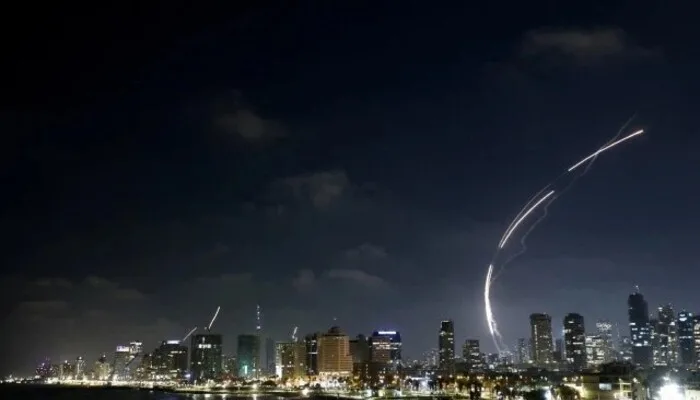
From Gaza to Syria, Lebanon to Iraq—and now Iran—military escalations led by Israel have unfolded almost simultaneously, marking perhaps the most dramatic regional escalation in recent Middle Eastern history. The ostensible motives of “self‑defense” and “national security” mask a far larger strategy—one that critics warn uses coordinated military escalations to project power over Muslim-majority states while sidestepping international scrutiny.
These deep-reaching military escalations, including the largest strike in decades—Operation Rising Lion on Iran—expose critical questions: Where do defense tactics end and aggressive dominance begin? How can a nuclear-equipped state strike multiple sovereign nations with little accountability?
1. Five Muslim Nations Under Fire
Over the past decade, Israel has repeatedly launched strikes across five Muslim-majority countries:
-
Gaza (Palestine): Israel has waged near-daily air campaigns since 2008. In the current Gaza war alone, the Gaza Health Ministry lists over 48,000 Palestinian deaths due to airstrikes, with continued reports of widespread destruction.
-
Syria: Israel carried out hundreds of airstrikes against Iranian and Hezbollah positions, frequently hitting civilian areas and fueling displacement .
-
Lebanon: Repeated bombardments targeting Hezbollah have killed thousands. In 2024, Israeli actions accounted for over 33,000 civilian casualties in Gaza and Lebanon combined—55 percent of bombing-related noncombatant deaths worldwide arabnews.com.
-
Iraq: Israeli forces have reportedly targeted Iran-aligned militias with drones and aircraft, bypassing Iraqi sovereignty through covert military escalations.
-
Iran: On 13 June 2025, Israel launched Operation Rising Lion, striking nuclear, missile, and military command facilities in Tehran, Natanz, and Isfahan. The offensive involved nearly 200 aircraft and precision drones, killing senior IRGC commanders—including Gen. Hossein Salami and Gen. Mohammad Bagheri—as well as nuclear scientist.
This sweep of action reflects military escalations that defy geographical boundaries—and traditional tactics.
2. Inside Operation Rising Lion
Israel mounted its most ambitious military escalations yet with Operation Rising Lion. On the morning of 13 June 2025, the operation unleashed a coordinated offensive: F‑16s, F‑35s, drones, and Mossad operatives hit nuclear enrichment plants, missile factories, and command centers deep inside Iranian territory .
Despite hitting facilities at Natanz, the UN nuclear watchdog—IAEA—reported no radiation leaks. Still, blasts shook Tehran and nearby cities. Within hours, Iran responded with over 100 drones targeting Israeli bases; Israel intercepted many while preparing for further escalation.
These swift military escalations underscore Israel’s growing reach—executing precise strikes far from its borders under the pretext of nuclear containment.
3. Justification vs. International Law
Israeli leaders justified their actions, claiming they struck preemptively to deny Iran nuclear weapons. Prime Minister Netanyahu warned Iran had amassed enough enriched uranium for multiple bombs—reaching what he called the “point of no return”.
Yet critics argue Israel skipped essential diplomatic processes. Under Article 51 of the UN Charter, a state must face an imminent threat to act in self-defense. Operating in five Muslim-majority countries, not just Iran, Israel’s strikes evade UN Security Council approval and blur the line between preemption and aggression .
International law demands restraint, transparency, and verification—a stark contrast to these sweeping military escalations, which critics say amount to extrajudicial power politics.
4. Regional Fallout and Economic Shock
The fallout from Israel’s military escalations has reached global proportions:
-
Iran retaliated with drone swarms and missile threats; neighboring countries—Jordan, Saudi Arabia, Syria, and Iraq—closed airspaces or scrambled jets .
-
Oil prices surged by 7–8%, reflecting fears of supply disruptions; energy markets remain volatile .
-
Stock markets dipped, including major indices like Pakistan’s PSX, shaken by unpredictability.
-
International leaders in the U.S., U.K., and Europe urged restraint, warning that unchecked military escalations could spiral into broader conflict.
The global ripple effects reveal that Israel’s strategic strikes don’t stay local—they stir geopolitics, economies, and civilian lives worldwide.
5. Seeking Accountability and Next Steps
Already, Muslim-majority nations—from Pakistan to Egypt and Turkey—alongside the Organisation of Islamic Cooperation (OIC), are condemning these military escalations. They demand:
-
Formal denunciation of violations of sovereignty,
-
UN-led investigations and potential sanctions,
-
Robust diplomacy and reinforcement of nuclear non-proliferation efforts,
-
Immediate de-escalation to prevent full-scale regional warfare.
Legal scholars emphasize that targeting multiple countries without UN approval requires rigorous oversight, accountability, and mechanisms for restitution.
Conclusion: Naming the Escalations
Israel’s usage of military escalations underscores a pattern. These are not isolated defensive maneuvers—they form a strategic sweep against Muslim-majority states under a self-defense veneer.
Institutions, human rights advocates, and governments must confront these truths: these military escalations represent state-level aggression, not spontaneous acts of defense. They merit thorough investigation, global condemnation, and, ultimately, justice.
We must stop euphemizing such actions. For peace to hold in the Middle East, we must call these military escalations exactly what they are—and demand accountability now.
















